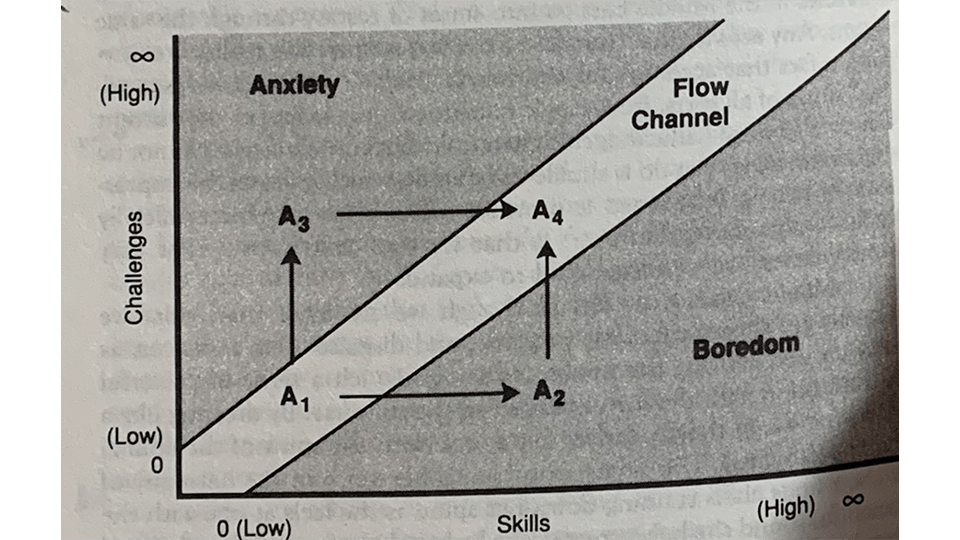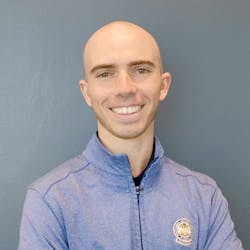Focused Practice
Our attention is a finite resource. Unfortunately, we easily squander it through self-imposed distractions and those that other individuals and corporations bombard us with.
"Attention is usually defined as a person's ability to selectively attend to something in the environment."
Being distracted means we are unable to…
"narrow the spotlight of our attention down to the one thing we wanted to focus on."
This post is inspired by a book I recently read titled Stolen Focus: Why You Can’t Pay Attention by Johan Harri. Unless otherwise specified, all quotes are from this book.
For golfers, practicing while distracted is par for the course.
It's rare to find an uninterrupted 60-90 minute block of practice.
You might not think that brief interruptions to your practice are a big deal.
Consider this:
"If you are focusing on something and you get interrupted, on average it will take twenty-three minutes for you to get back to the same state of focus."
If our attention is valuable, and interruptions negatively impact our ability to focus, we should spend time creating an interruption/distraction-free practice environment.
So let's say you manage to find a quiet spot to practice, and shut off your phone. You're all set! There's no way you will get distracted, right?
Well...
"If you have spent long enough being interrupted in your daily life, you will start to interrupt yourself even when you are set free from all these external interruptions."
Engaging in high-quality practice requires us to consider both individual and environmental factors.
Practice Environment
The goal is to have an interruption-free practice environment. This requires us to strategically design environments that respect our attention.
Distractions from the environment generally come from two sources:
- Our phone
- Other people at the practice facility
Practice Environment Distraction #1 — Our Phone
Our phone is an environmental factor that we have full control over. Shut it off.
It's simple, not easy.
Alternatively, invest in a second phone. Give the number to the two to three people that might need to get a hold of you in an emergency.
Practice Environment Distraction #2 — Other People
We can't control whether others will interrupt us. However, we can reduce the likelihood through our actions.
Consider the following:
- Structuring your practice at off-peak times. Yes, that means going to bed early and practicing early in the morning. No, it doesn't mean sacrificing sleep.
- Find secluded areas at the practice facility. Spend time observing where the low and high-traffic areas are. Practice in the low-traffic areas.
Individual Factors
Once we have created a distraction-free environment we must improve our ability to focus.
The goal is to train our ability to maintain a sustained focus of attention on one task for an extended period.
This can be achieved through developing a contemplative practice. Two common contemplative practices are mediation and mindfulness.
"Mindfulness is paying attention in a particular way: on purpose, in the present moment, and non-judgmentally." — Jon Kabat-Zinn
Said another way…
"Mindfulness training teaches us how to broaden or narrow our flashlight beam of attention and direct it to where it will be most helpful to us" — Dr. Steven. C. Heyes
Developing a contemplative practice can change your brain structure and how your genes are expressed.
"A vast research base shows that contemplative practice has good effects not only on our brains but on every cell in our body. Changes in brain structure and reactivity produced by meditation lead to a greater ability to experience internal sensations, less emotional reactivity, and greater attentional efficiency...Meditation also changes the expression of 7 to 8 percent of the genes you have, primarily through epigenetic changes that up- and down-regulate genes involved in the stress response."
Remember this quote from earlier?
"If you have spent long enough being interrupted in your daily life, you will start to interrupt yourself even when you are set free from all these external interruptions."
A contemplative practice will change our brain structure in a way that stops us from interrupting ourselves.
"'All of man’s troubles arise because he cannot sit in a room quietly by himself.' If you could just sit for thirty minutes and be happy, you are successful. That is a very powerful place to be, but very few of us get there." — Naval Ravikant
Addressing Both Environmental and Individual-Level Issues
If we create a distraction-free environment but cannot sustain our focus of attention, our practice suffers.
If we can sustain our focus of attention but practice in an environment full of distractions, our practice suffers.
There is no "either/or" solution to this problem. Both issues have to be addressed simultaneously.
Content of your practice
Once you've addressed the environmental- and individual-level issues, you can focus on the content of your practice.
"I realized then that to recover from our loss of attention, it is not enough to strip out our distractions. That will just create a void. We need to strip out our distractions and replace them with sources of flow."
What is flow? Good Question!
"Flow is when you are so absorbed in what you are doing that you lose all sense of yourself, and time seems to fall away, and you are flowing into the experience itself. It is the deepest form of focus and attention that we know of."
The chart below highlights that as our skill level improves, the perceived challenge of the task must increase for us to experience flow.
If the task is too difficult, we experience anxiety. If the task is too easy, we experience boredom.

From personal experience, I would argue that high-level golfers tend to spend too much time in the lower right quadrant of the chart.
In other words, they are practicing in ways that lack sufficient challenge given their skill level.
Ask yourself the following question.
How has your practice evolved over the past 3-5 years?
Assuming your skill has improved over that period, we would expect the way you practice to have evolved.
Unfortunately, many golfers haven't changed their practice structure despite improvement in skill level.
"Life begins at the edge of your comfort zone" — Neale Donald Walsch
This insight applies to golf practice as well. Meaningful practice begins at the end of your comfort zone.
Creating a Practice Plan
The reason many of us distract ourselves during practice is that we lack a concrete practice plan that challenges us.
Many of us would struggle if we were left alone to practice for two hours in a distraction-free environment. There would be a void. An urge to check our phone or talk with someone to escape the uncomfortable feeling of not knowing what to do to improve.
To address this issue we need to develop an Independent Development Plan (IDP).
Here are the six steps to developing your IDP.
- Model excellence - What are we trying to build?
- Rate Importance - What are the highest value activities?
- Identify a baseline - Where are we now?
- Aim at a target - What outcomes do we want to achieve?
- Develop a process - What actions will achieve our outcome?
- Calibration - 360-degree feedback on the above
This is not an easy process. But part of your allocated practice time should be spent creating a practice plan. Otherwise, you are likely just “going through the motions”, physically practicing, but mentally checked out.
Conclusion
Effective practice requires a sustained focus of attention.
Creating a distraction-free environment and improving our ability to focus will create a solid foundation upon which purposeful practice can occur.
Once this has been achieved, we should develop an Independent Development Plan (IDP). This ensures we use our practices to challenge ourselves in the areas that are most relevant to lowering our scores.
Performance Optimization Program
Developing an IDP, optimizing practice environments, and managing distractions are some of the key topics covered in my Performance Optimization Program (POP).
Do you have questions or simply want to chat about the content of this post? Feel free to contact us
Don't forget to subscribe to my newsletter for more similar content.

Are you ready to improve your game?
Book your assessment today by clicking the button below. We'll call you to schedule your visit.
